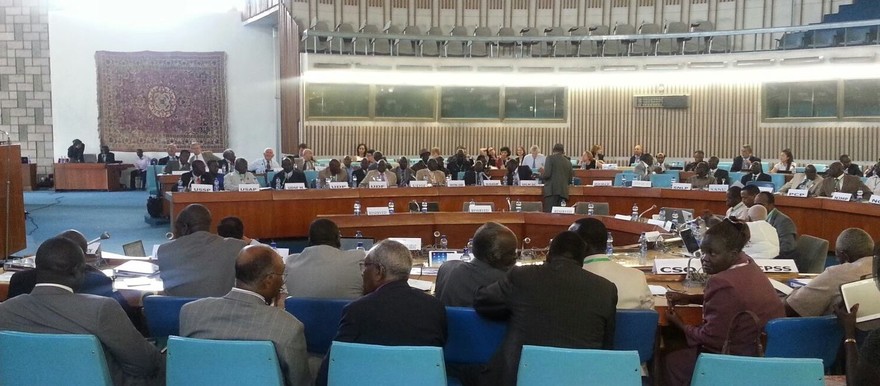East African mediators of the Inter-Governmental-Authority on Development have announced the ‘successful’ conclusion of a two-day symposium with civil society, government, and opposition delegates in Addis Ababa.
IGAD is facilitating the South Sudan peace talks through special envoys appointed by the body’s chair, the Ethiopian prime minister. The regional organization is backed financially and diplomatically by the Troika of Norway, the United States and the United Kingdom, among other countries.
Last month the Ethiopian Prime Minister hosted talks with Salva Kiir and Riek Machar, the two men leading the armed factions that fought in South Sudan since December 2013, and brought them face-to-face for signing an agreement to end the fighting.
As part of the deal the two sides agreed to enter into an ‘inclusive’ phase of the peace process involving dialogue with other stakeholders including civil society, religious leaders and other political parties.
In a press release late Saturday, IGAD announced “the multi-stakeholder symposium to initiate an inclusive phase of the peace process in South Sudan successfully concluded this evening in Addis Ababa.”
More than 250 South Sudanese representing the government, the opposition, political parties, faith-based groups and civil society organizations participated in the two-day event.
IGAD Special Envoy General Lazaro Sumbeiywo, who chaired the two-day deliberations, explained that the symposium was not a platform for negotiations, but served as a forum to educate, inform and share knowledge and experiences with participants.
Tedros Adhanom, Ethiopia’s Foreign Minister and chairman of the IGAD Council of Ministers, keynoted the event in an address at the beginning of the symposium.
He stressed that the 9 May agreement between the government and rebels “committed all parties to the principle of inclusivity,” welcoming civil society and other stakeholders’ involvement in the peace process.
During the symposium, international experts offered presentations on different topics, including: transitional governance arrangements and interim institutions; justice, reconciliation and healing; security arrangements; and constitutional development and reform.
Later, participants discussed these issues with the experts. IGAD said the discussions with the experts were ‘informal.’
The next steps in the peace process are yet to be announced, though it is expected new developments could take place today, during the extra-ordinary session of the IGAD Assembly of Heads of State and Government.




